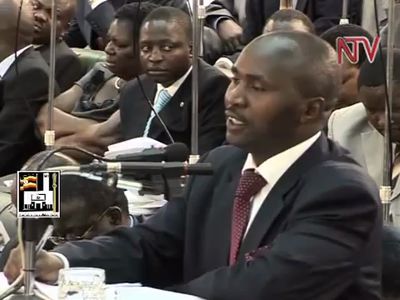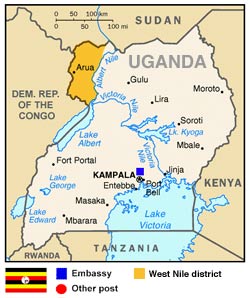The framing of the present debate on constitutional review has one flaw. In seeking to bring a Bill to amend the Constitution, elected officials have assumed the power to speak for us all. This would have been fine if Parliament was a truly representative institution. But that is simply a piece of political fiction. Major makeovers of the Constitution must proceed by way of referenda, where they concern a few essential questions or through a Constituent Assembly. The latter is what Uganda needs today.
Constitutional amendments in 2005 and those proposed today have been a tool in the hands of politicians to indirectly address the question of political transition. This is not strictly a matter for the rule of law, or the social contract, which a Constitution is both, but a question of politics. A Constituent Assembly (or CA) is designed to address these questions directly and through consensus.
It is also strictly speaking not a matter for politicians but the public. Uganda has never had a peaceful political transition. Instead violent political competition has claimed countless innocent victims, especially in the first half of independence. There is subsequently no holy grail about how to do a peaceful transition. Also aside from the first CA, politics has been unable to confront in an honest manner what lies at the heart of Uganda’s perennial susceptibility to political violence.
Issues such as ethnic competition and devolution of power, elite corruption and so-called sharing of the national cake as well as impunity and human rights abuses. There is quite honestly a crisis of confidence amongst leaders who have never been part of a peaceful transition and real fear from at least one Ugandan generation of what chaos could arise from a cog up.
A CA is a more legitimate process as constitutional practice where major renewals are sought and offers the most constructive technology to overcome some of the concerns expressed above.
In any case as the supreme law of the land, any Constitution draws its power from the will of the people. It’s the binding contract that defines how they have chosen to be governed by their elected officials. So major questions of governance – must be returned for their consent. This was the flaw of the 2005 amendments where issues such as presidential term limits that had their root in what Ugandans saw as the danger of perpetual incumbent power were entrusted to malleable MPs and never to a referendum or to a CA.
There are proposals today that the 9th Parliament extends its term and turns itself into some sort of CA to consider major constitutional review. This is welcome but if a general election is to be stayed for purposes of constitutional reform, it must be replaced with an elected CA – not the current Parliament.
I recently gave a talk titled: Why Uganda needs a constitutional crisis as a way of discussing two transitions I believe are happening side by side. That is the present political transition as well as Uganda’s transition to a producer of oil and other minerals. My argument was that institutions of the new oil sector by themselves will not, however well designed, function optimally.
This is because the sector will be shaped largely by the character of Ugandan politics. So it’s to political reform one should look because the system of checks and balances determines how institutions that serve Ugandans perform. Unfortunately, building of political consensus has over the years grown the size of government- initially through the so-called “broad-based system” of the no-party state and later through political pluralism that converted the structures of the no-party state into the organs of the National Resistance Movement as a political party.
These days, it’s the robustness of patronage not public policy that seems to run the government. There is inertia and collective recognition that a leaner government, leaner Parliament and more principled politics would be better. This is the promise that the present generation are challenged to deliver, moreover in a relatively short transitional window of 10 years (my calculation).
Political transition in Uganda is also about political succession. While its useful to recall that Uganda has never had a peaceful political transition or succession- there is no reason to fear that it cannot be achieved. What should be feared is if such a process were imposed through a staged process of constitution review similar to the 2005 amendments. A process that is a fixed match will not last and may instead sow the seeds of future conflict.
Today’s leaders are being asked to look to African history but also recent Ugandan history, rise above their concerns for what happens in their lifetime and consider the future of their grandchildren and beyond. Constitution making is one way to make a bargain with the future. A CA is perhaps the only process that allows two things to happen simultaneously that Uganda needs in this transitional period.
First is for politicians to find a consensus that moves away from the crisis driven version of competition that threatens the stability of the State today; and the second is to heal the separation of powers and our system of checks and balances- so that the government is more effective.
It’s also a place where difficult questions are addressed publicly and lawfully. How else can one deal with issues like the need for a smaller Parliament? Or the future role of the Ugandan military and its relationship with politics? Or whether or not one-time presidential immunity should be extended to Mr Museveni for life? Through a CA Ugandans can construct a new Constitution while striking political consensus at a time when we need it the most.
Mr Izama is a political analyst










